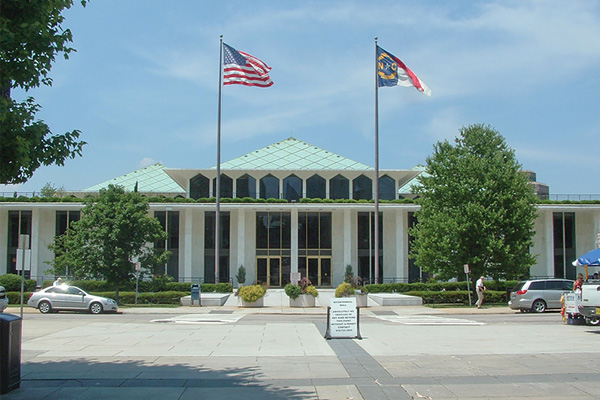The North Carolina legislature went back into session on Tuesday, April 29.
Both houses wasted no time in getting down to work, which is not surprising since the session is only expected to last a few days.
In the state Senate, a bipartisan bill was filed to appropriate or place in reserve $2.4 billion in federal funds the state has received to respond to the COVID-19 crisis.
State Senate President Pro Tem Sen. Phil Berger (R-Rockingham) in a press release stated, “The virus might have forced us apart, but it brought together ideas from every corner of the state. From Cullowhee to Currituck, senators have taken on the task of responding to this unprecedented situation.”
Senate Minority Leader Dan Blue (D-Wake) said, “There isn’t a single North Carolinian that hasn’t been impacted by this virus in some way. It is imperative that we come together to provide relief to our citizens. Our members have worked tirelessly since this pandemic began and now we have the chance to provide relief to all North Carolinians.”
Education funding figured prominently in the bill. Some of those allocations are:
$95.6 million to the Governor’s Emergency Education Relief Fund
$396 million for the Elementary and Secondary School Emergency Relief Fund
$179.7 million for the Higher Education Emergency Relief Fund
$56 million for school nutrition programs
$70 million for summer learning programs
$42.4 million to the UNC System to move classes online, campus sanitation before reopening and other coronavirus-related expenses
$25 million to the community college system to enhance online learning and other coronavirus-related expenses
$10 million to independent colleges and universities to help support families impacted by the coronavirus.
There is also $50 million for medical supplies, and $300 million for the North Carolina Department of Transportation to address budget shortfalls
In anticipation that the stay-at-home orders will end, there is $5 million for Visit North Carolina marketing.
The bill also provides Medicaid coverage for uninsured individuals to be tested for COVID-19.
It also waives the interest payments on individual, corporate and franchise tax payments due on or before April 15 if the taxes are paid by July 15, 2020.
The bill also makes adjustments in the regulations involving K-12 education, higher education, the Department of Motor Vehicles, public meetings and unemployment insurance.
It’s a long bill that covers a lot of territory and is expected to pass the state Senate pretty quickly with bipartisan support.

